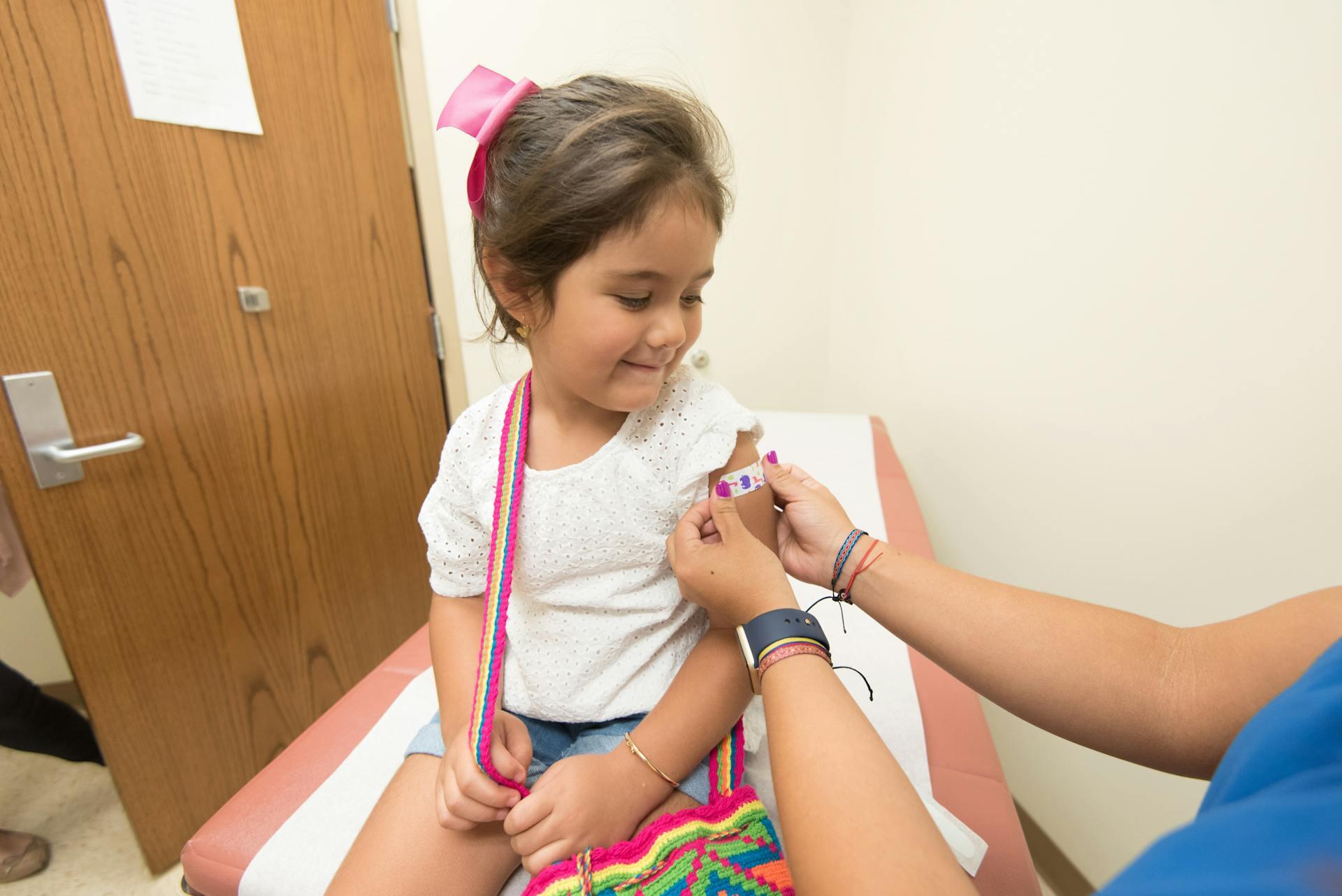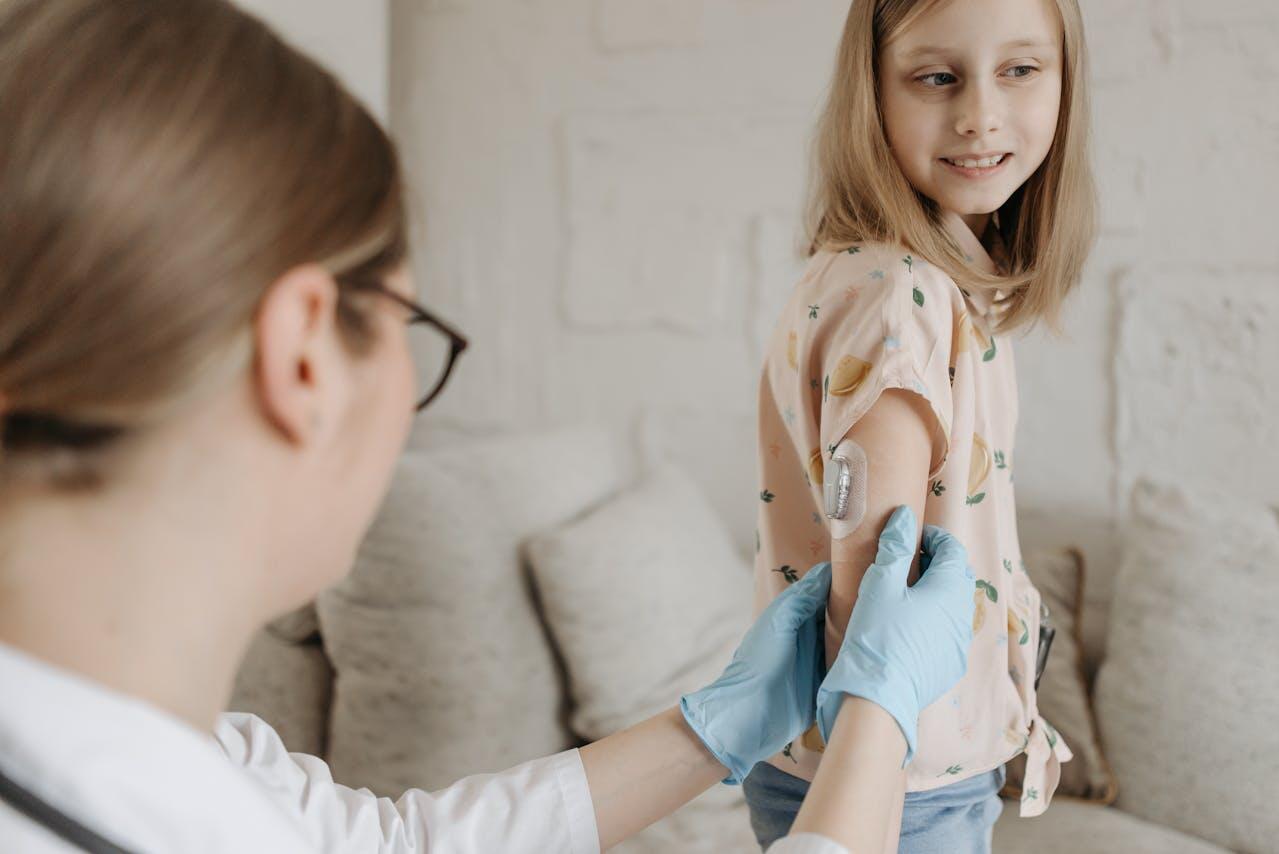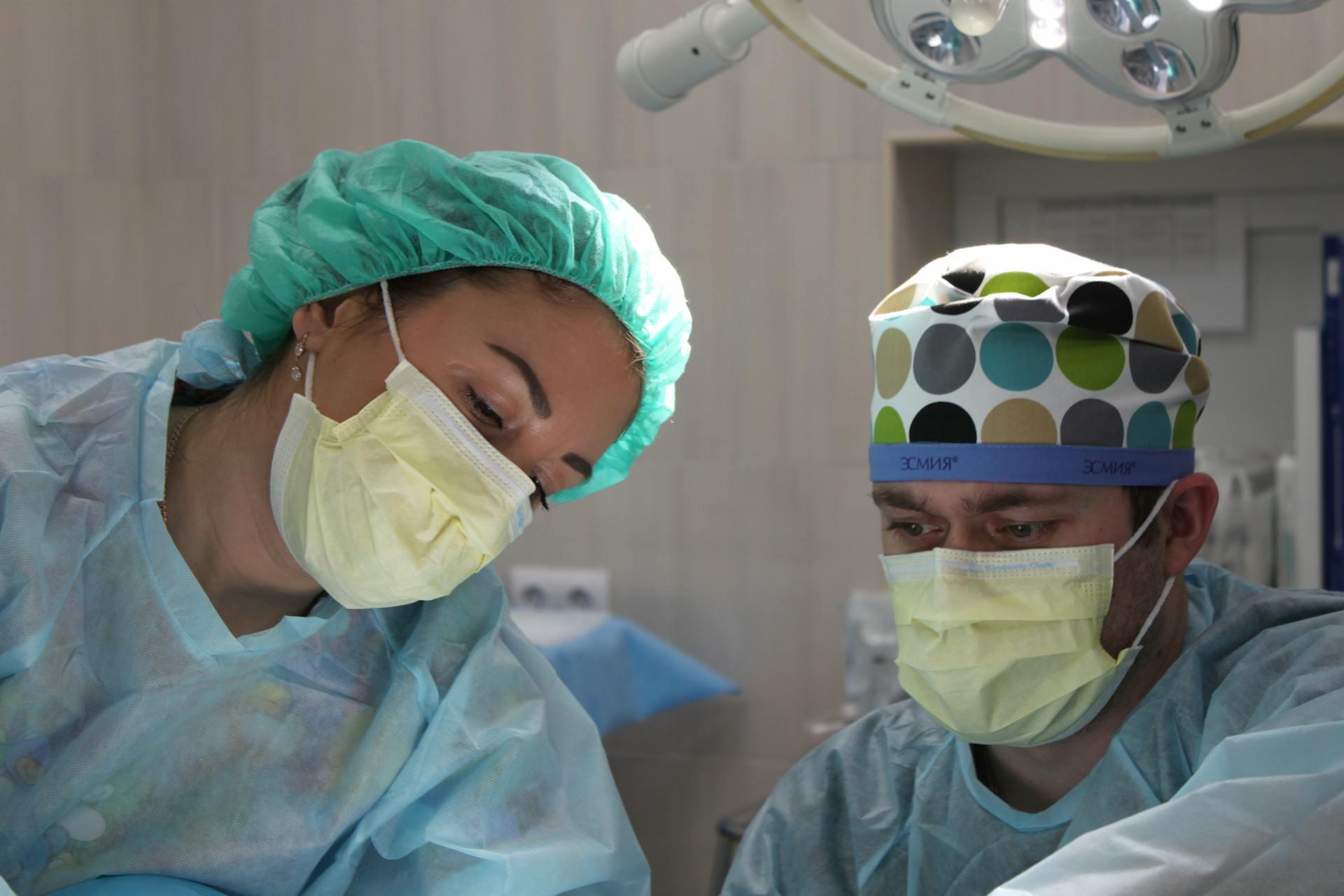As a newly qualified pediatric nurse, you'll be the first person children and their families turn to at some of their most important or distressing moments in their lives. From performing a baby's very first health check-up, to helping an injured teenager recover after a nasty fall off their skateboard, you'll need to have what it takes to provide reassurance and vital care for young people up to the age of 18.
If you're seriously thinking about taking up nursing, pediatric care is considered one of the most rewarding branches of the four main types of nursing out there. In this guide, we'll take you through the sort of tasks you'll be expected to perform as a pediatric nurse, the training you'll need to complete to get started, and lots more related information. Keep reading below.

What Does a Pediatric Nurse Do?
Much like other roles in nursing, life as a pediatric nurse is rarely predictable or boring. For example, pediatric nurses will be swept off their feet at the best of times. Why? Well, they'll need to deal with a variety of pressing tasks like helping children recover from major surgery or talking to parents to reassure them that everything is okay.
What Are Some of the Core Duties in Pediatric Nursing?
Although children's nursing only represents around 8% of the NHS nursing workforce, children make up nearly a quarter of A&E visits in England. As a result, pediatric nurses need to be pretty adaptable - being able to switch from calmer, more routine assessments to high-pressure emergencies at a moment's notice
Where Can You Work as a Pediatric Nurse?

Children need healthcare everywhere, not just in hospitals. As a result, pediatric nurses can be found in a pretty wide range of settings across the UK, including health clinics and schools.
Each environment demands something different for nurses, affecting the pace of the job and the kind of relationships they foster with children and their families. Let's take a closer look at where you might find work as a pediatric nurse.
Hospitals & Emergency Departments
Hospitals employ the largest number of pediatric nurses, especially on children's wards and in A&E. Here, work can be intense and stressful, with nurses expected to juggle many different duties at the drop of a hat
Community and GP Practices
In community or GP practices roles, the focus tends to shift more towards prevention and long-term support for kids. For instance, you might run baby clinics, give vaccinations, or even visit families at their homes
Specialist Settings
Some nurses also choose to specialise in more advanced areas of healthcare for children. In neonatal intensive care, they care for premature babies, while in oncology units, they support kids dealing with cancer by administering chemotherapy
Sadly, just like neonatal nurses, children's nurses are in very short supply across the UK. As a result, their skills are very sought after, especially in places like neonatal wards and emergency departments where the pressure is constant and the need for specialist care is high. While unfortunate, this shortage naturally makes pediatric nursing a brilliant career for those looking to secure employment quickly

What Training and Qualifications Do You Need to Get into Pediatric Nursing?

If you're keen to become a pediatric nurse yourself, the first step is understanding how to qualify. Here in the UK, children's nursing counts as a regulated profession, so you'll need to have the correct academic qualifications, training, and registration before you can get the green light to start working - especially if you want to move forward towards an advanced practitioner role in the future.
| Role / Programme | Typical Entry Qualifications | Notes / Additional Requirements |
|---|---|---|
| BSc Nursing (Children’s Nursing) | 3–4 A-levels (Science-focused preferred: Biology, Chemistry, Psychology) OR equivalent BTEC | Must complete clinical placements; leads to NMC registration |
| Nursing Apprenticeship | GCSEs (usually 5, including English & Maths) | Work-based learning; supervised clinical practice; NMC registration upon completion |
| Specialist / Advanced Nurse Practitioner | Registered Nurse (adult or children) + Postgraduate degree (MSc / PGCert / PGDip) | Often requires 3–5 years clinical experience; prescribing qualification possible |
| Healthcare Support Worker (Paediatrics) | Level 2–3 Diploma / NVQ in Health & Social Care OR relevant experience | Not a registered nurse; supportive role; experience can help entry into nursing degree |
| Neonatal / School / Community Nursing | Registered Nurse | Often requires post-registration courses or certifications specific to the setting |
Step 1
School and University Qualifications
It all starts with your school qualifications. Most future children's nurses need at least five GCSEs under their belt, including English, maths, and a science subject, before moving onto an A levels or equivalent course such as a BTEC or Access diploma. If biology is part of your studies, even better - most universities prefer it.
Step 2
Choose Your Training Route
Next comes a big decision. Should you choose a university degree or an apprenticeship? A full-time BSc in Children's nursing will usually take about three years to complete, mixing placements in with classroom learning. On the other hand, a four-year nursing degree apprenticeship allows you to earn a salary while training.
Step 3
Learning While on Placement
No matter the route you decide on, placements are where you'll spend a pretty big amount of time. For example, you could find yourself in a children's ward one day, in a GP clinic the next, and so on. These experiences will help you gain the practical skills needed to flourish as a nurse and start working you want
Step 4
Register as a Nurse
Once you're officially done with your course, you can then apply to join the Nursing and Midwifery Council (NMC) register. This step is where you can officially call yourself a children's nurse and start working in the NHS or wherever suits you.
If you're starting a children's nursing degree in England, you might be eligible for the NHS Learning Support Fund. Through this scheme, you'll be given a £5,000 non-repayable grant each year of your studies.
What is a Pediatric Nurse's Income?
One of the biggest questions people ask before going into nursing, be it neonatal, mental health-based, or pediatric, is whether they'll actually be able to build a stable career out of it or not. After all, in the UK, nursing has a bit of a reputation for being underpaid and undervalued.

While there's certainly some truth in this statement, the picture for children's nurses is more balanced than people often assume. Thanks to the NHS Agenda for Change system, salaries are also set nationally, so there's some transparency about what you'll earn and how your pay will rise as you move upwards through the bands.
| Stage | NHS Band and Salary (2025) | What This Role Looks Like |
|---|---|---|
| Newly Qualified Nurse | Band 5: £31,000 to £37,700 | First role post-graduation, working under supervision, gaining clinical skills. |
| Experienced/Specialist Nurse | Band 6: £38,600 to £46,500 | After 2–3 years. specialisms (e.g., NICU, oncology), more autonomy overall |
| Ward Sister/Charge Nurse | Band 7: £47,800 to £54,700 | Leadership of a team/ward, mentoring, operational responsibilities |
| Matron/Advanced Nurse Practitioner | Band 8a+: £55,000–£115,000+ | Senior management/clinical leadership, policy and education roles |
What Skills and Qualities Do You Need to Become a Pediatric Nurse?
If you want to become a successful pediatric nurse, there are a few skills and qualities you'll need to embody. Working with children means adapting your approach constantly - a frightened toddler needs a different sort of support in comparison to an older teen or worried parent, for example. The same is true for those in the medical nursing profession.
References and sources
- NHS Health Careers - Children's Nurse https://www.healthcareers.nhs.uk/explore-roles/nursing/roles-nursing/childrens-nurse
- Nursing and Midwifery Council (NMC) – Standards of Proficiency for Registered Nurses https://www.nmc.org.uk/standards-for-nurses/
- NHS Employers Pay Scales https://www.nhsemployers.org/articles/pay-scales-202526
- Pediatric Nurse Job Profile Indeed https://uk.indeed.com/career-advice/finding-a-job/pediatric-nurse-job-profile
Summarise with AI:
























